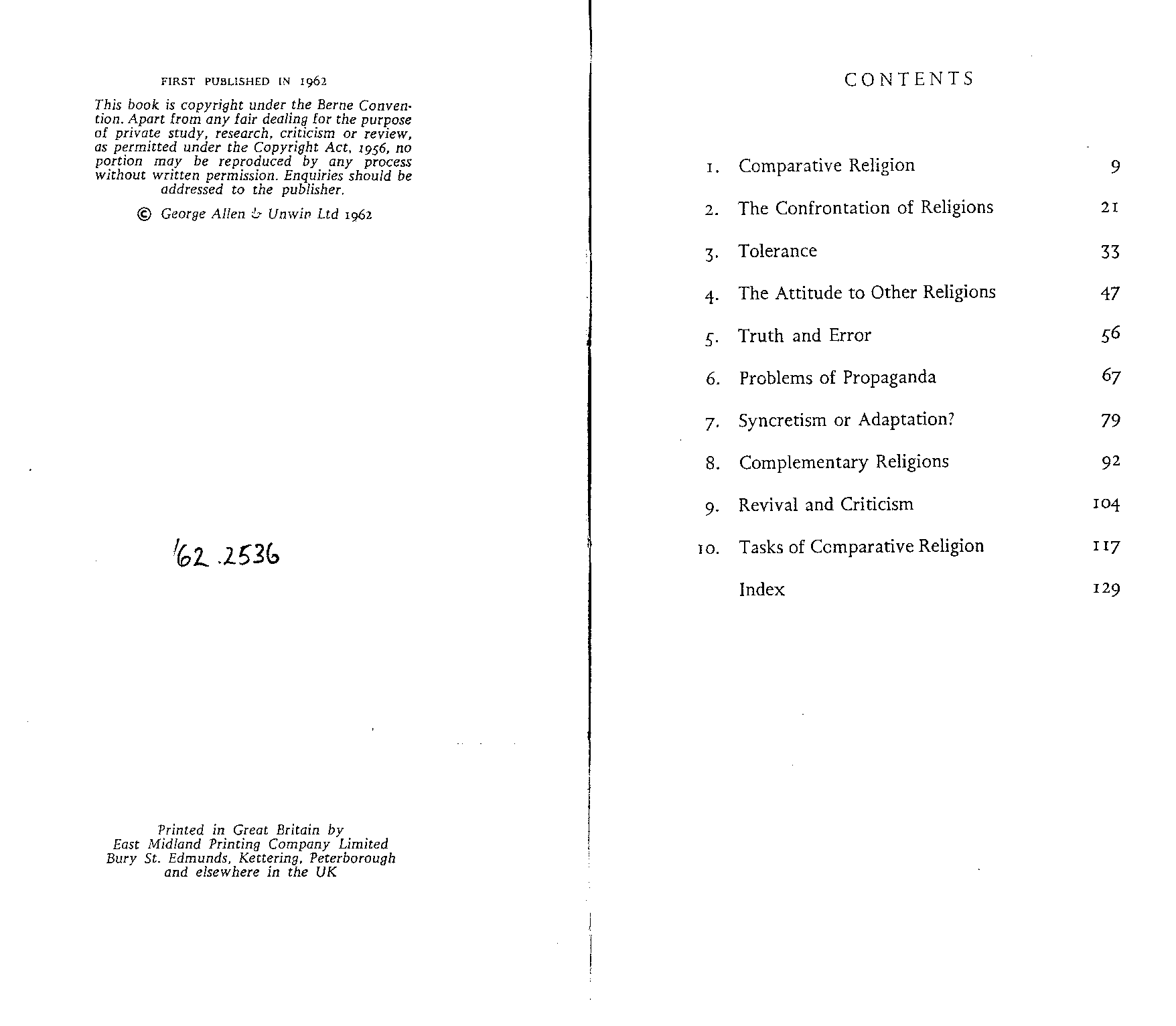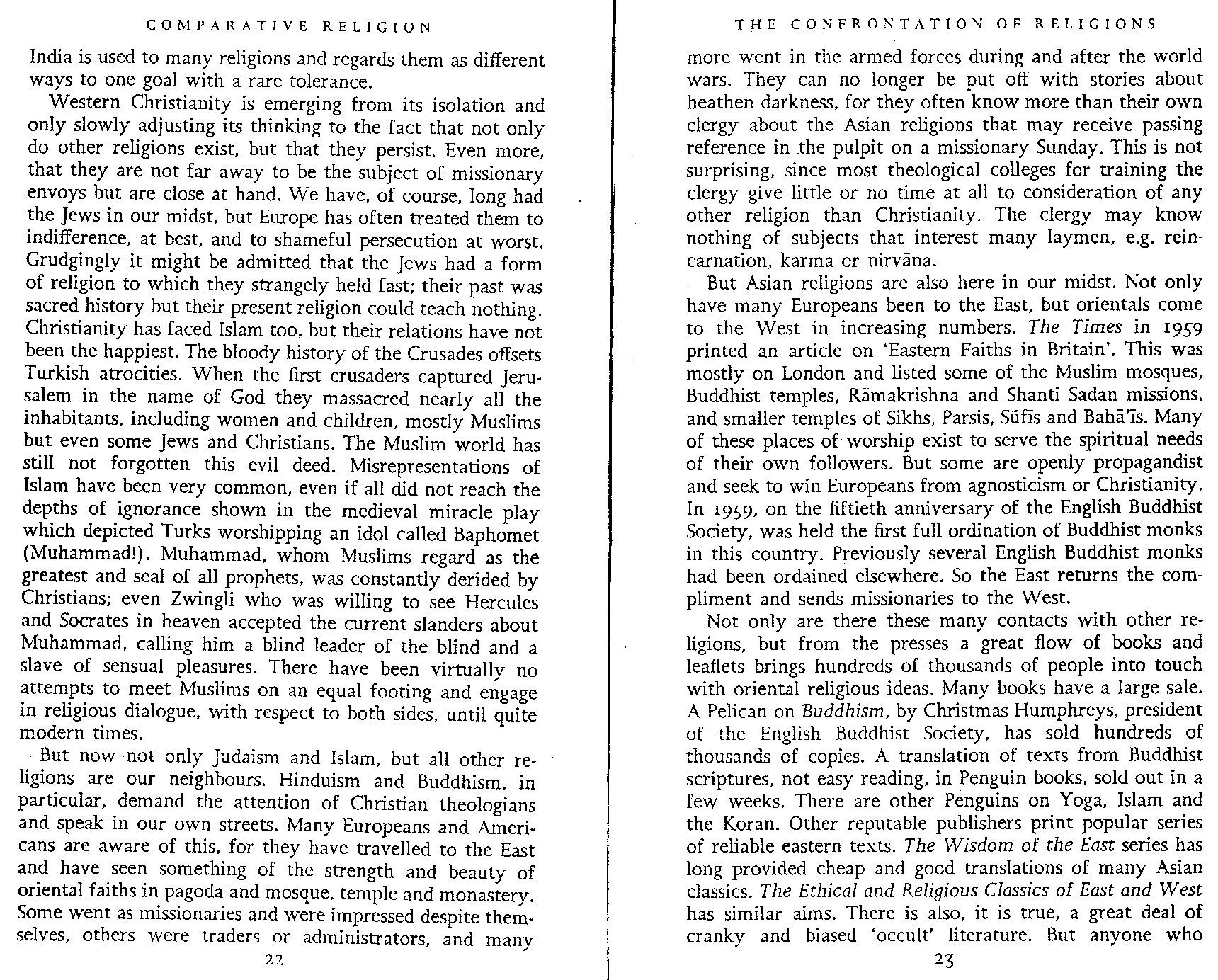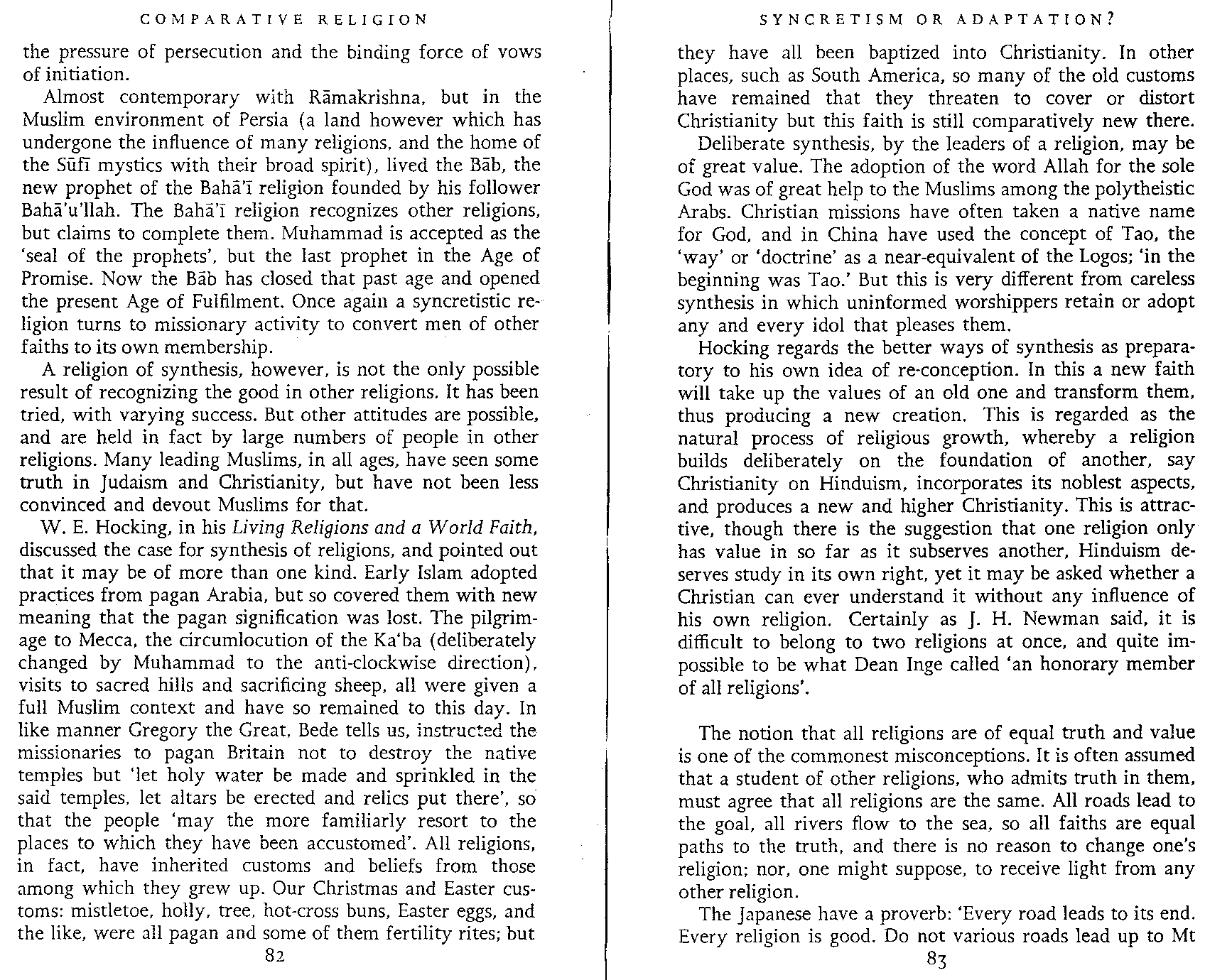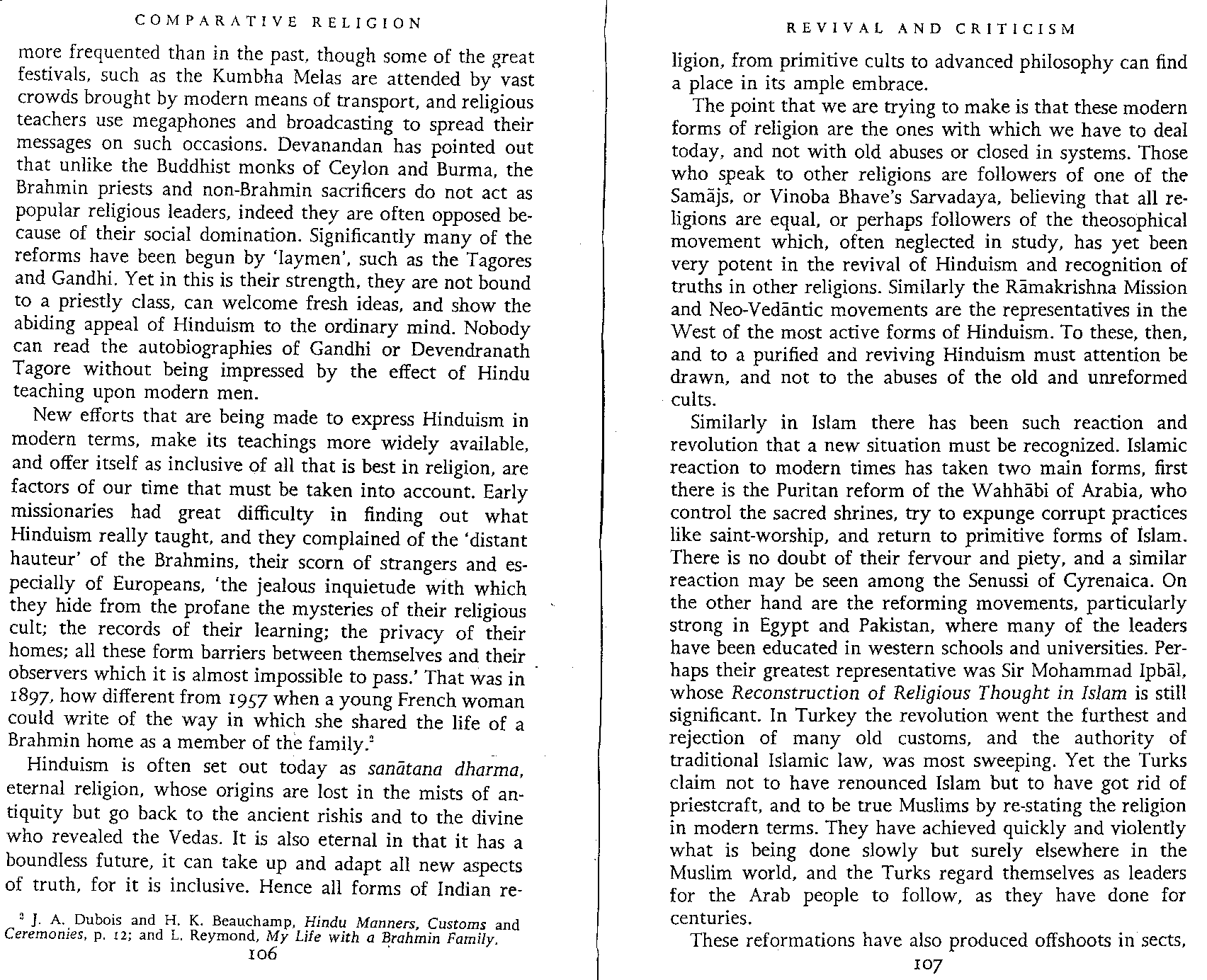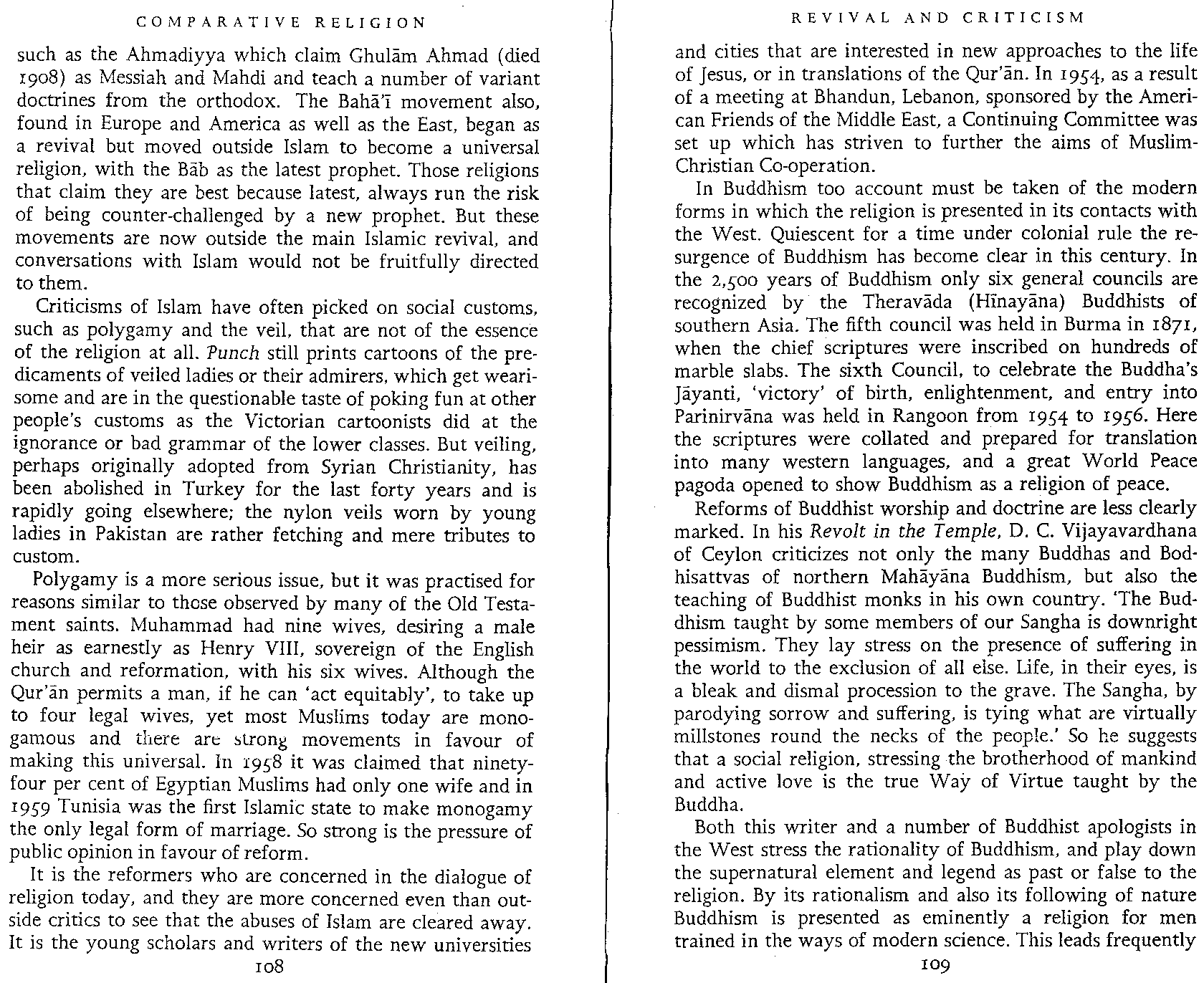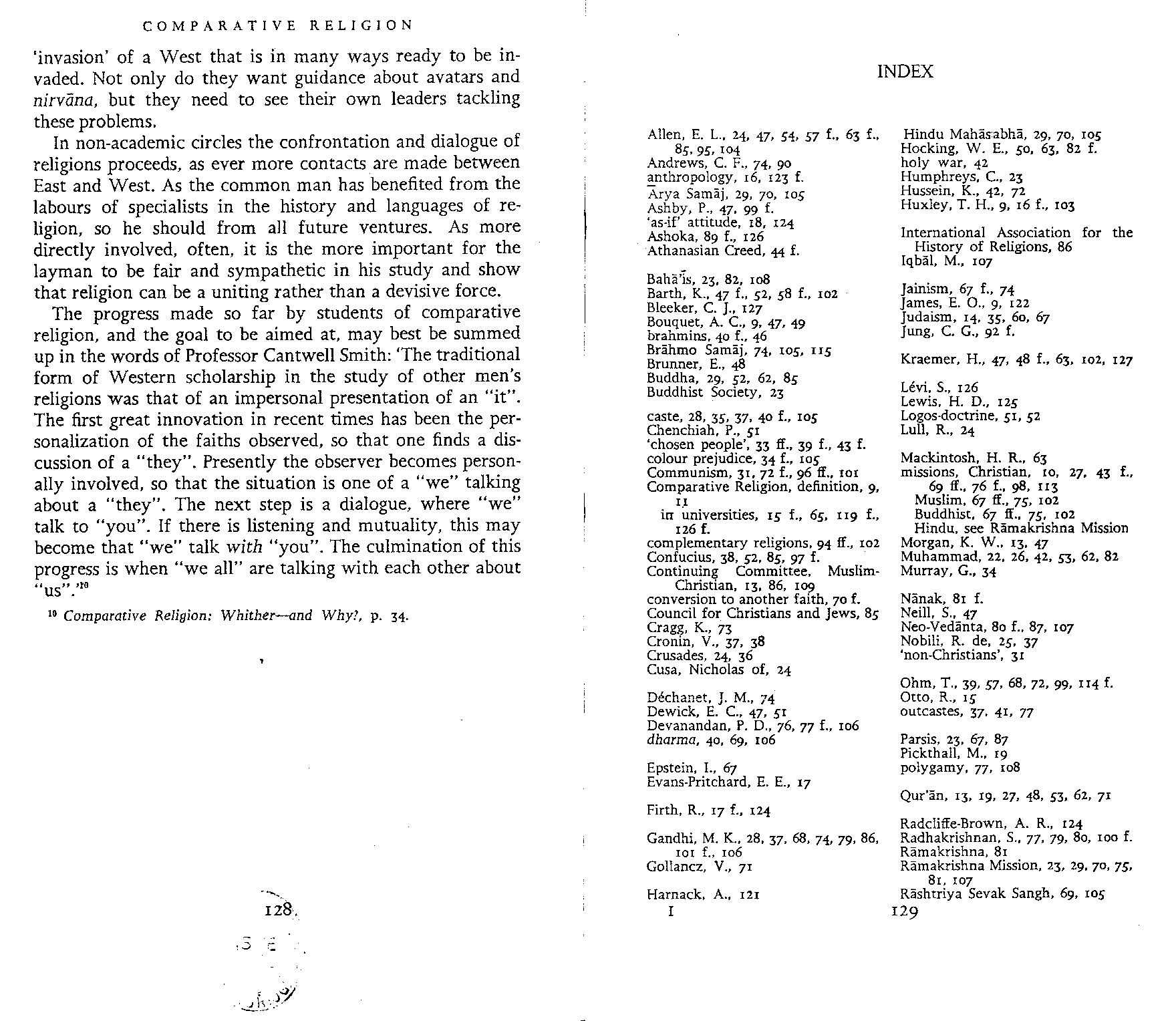
|
|
Abstract: Three passing mentions. |
1. Text
[page 23]...
But Asian religions are also here in our midst. Not only have many Europeans been to the East, but orientals come to the West in increasing numbers. The Times in 1959 printed an article on 'Eastern Faiths in Britain'. This was mostly on London and listed some of the Muslim mosques, Buddhist temples, Ramakrishna and Shanti Sadan missions, and smaller temples of Sikhs, Parsis, Sufis and Bahá'ís. Many of these places of worship exist to serve the spiritual needs of their own followers. But some are openly propagandist and seek to win Europeans from agnosticism or Christianity.
...
[page 82]
...
Almost contemporary with Ramakrishna, but in the Muslim environment of Persia (a land however which has undergone the influence of many religions, and the home of the Sufi mystics with their broad spirit), lived the Bab, the new prophet of the Bahá'í religion founded by his follower Bahá'u'lláh. The Bahá'í religion recognizes other religions, but claims to complete them. Muhammad is accepted as the 'seal of the prophets', but the last prophet in the Age of Promise. Now the Bab has closed that past age and opened the present Age of Fulfilment. Once again a syncretistic religion turns to missionary activity to convert men of other faiths to its own membership.
...
[page 107]
...
Similarly in Islam there has been such reaction and revolution that a new situation must be recognized. Islamic reaction to modern times has taken two main forms, first there is the Puritan reform of the Wahhabi of Arabia, who control the sacred shrines, try to expunge corrupt practices like saint-worship, and return to primitive forms of !slam. There is no doubt of their fervour and piety, and a similar reaction may be seen among the Senussi of Cyrenaica. On the other hand are the reforming movements, particularly strong in Egypt and Pakistan, where many of the leaders have been educated in western schools and universities. Perhaps their greatest representative was Sir Mohammad Iqbal, whose Reconstruction of Religious Thought in Islam is still significant. In Turkey the revolution went the furthest and rejection of many old customs, and the authority of traditional Islamic law, was most sweeping. Yet the Turks claim not to have renounced Islam but to have got rid of priestcraft, and to be true Muslims by re-stating the religion in modern terms. They have achieved quickly and violently what is being done slowly but surely elsewhere in the Muslim world, and the Turks regard themselves as leaders for the Arab people to follow, as they have done for centuries.
These reformations have also produced offshoots in sects,
[page 108]
such as the Ahmadiyya which claim Ghulam Ahmad (died 1908) as Messiah and Mahdi and teach a number of variant doctrines from the orthodox. The Bahá'í movement also, found in Europe and America as well as the East, began as a revival but moved outside Islam to become a universal religion, with the Bab as the latest prophet. Those religions that claim they are best because latest, always run the risk of being counter-challenged by a new prophet. But these movements are now outside the main Islamic revival, and conversations with Islam would not be fruitfully directed to them.
...
2. Image scans (click image for full-size version)
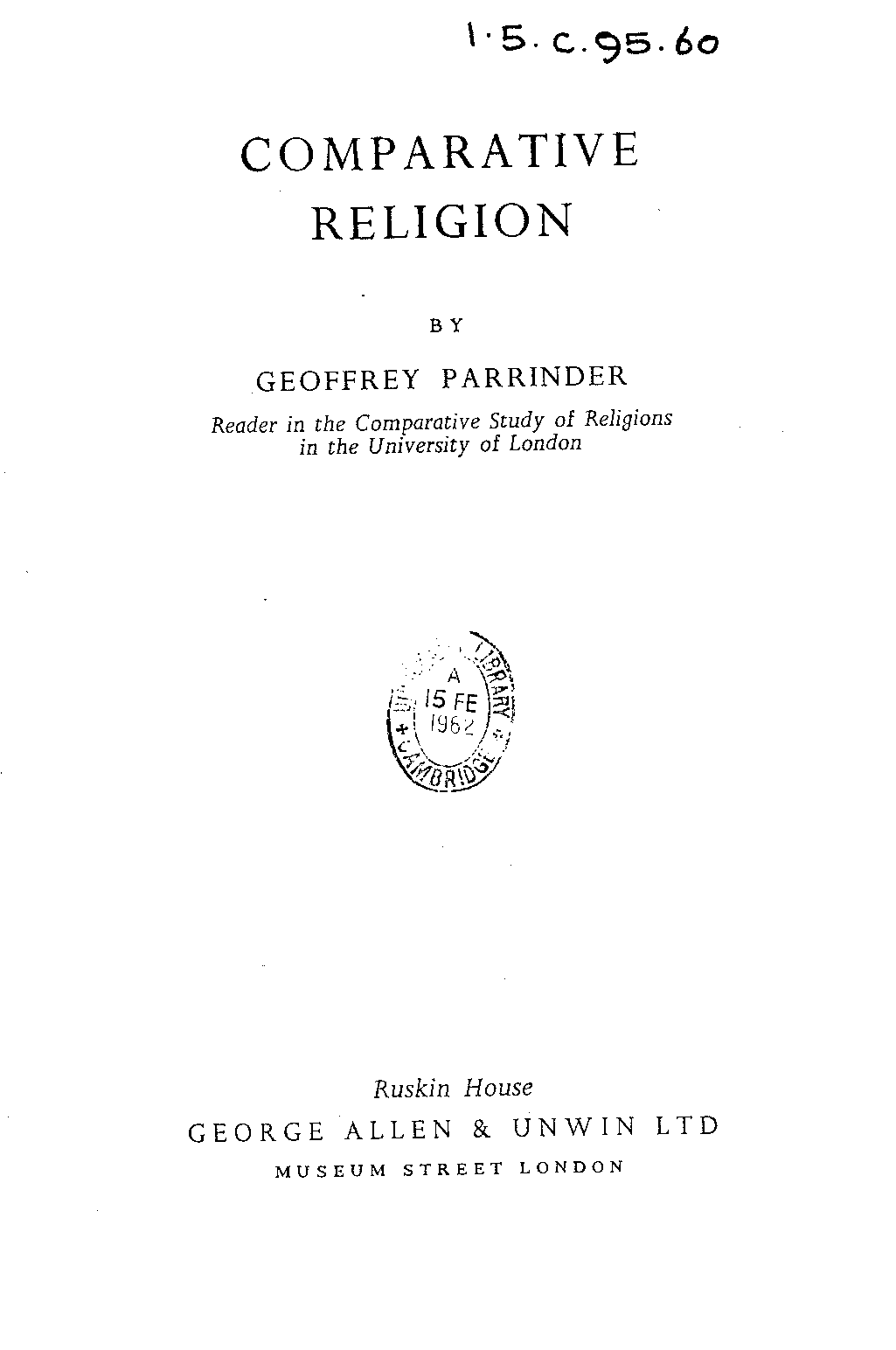
|
|
